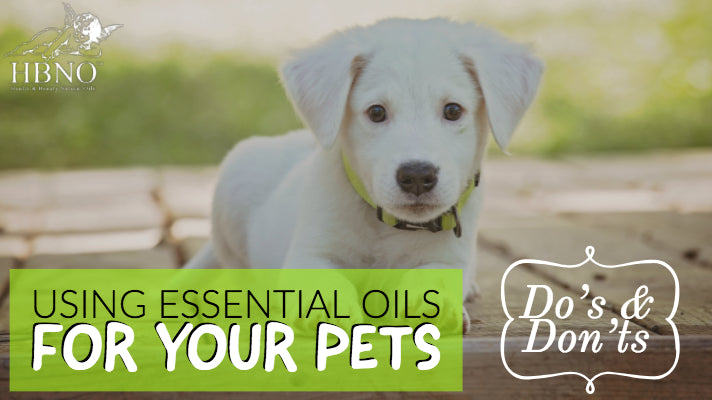
Do's of essential oils
1. Applying essential oils:
Essential oils are absorbed by inhalation and contact with the skin.
Essential oils can be applied by putting a few tiny drops onto pet's collars and/or lightly misted on their fur. Diffusing oils can help your pet to relax, but never lock them in a room with a diffuser running. They can also be applied directly onto the body if highly diluted such as paw pads etc.
2. Always use therapeutic grade oils:
When you buy essential oils, make sure that you are buying therapeutic grade oils from a reputable company. It is always best to check that you are using an essential oil of good quality.
Because HBNO oils are always 100% pure and natural, you won't have any issues here ;)
3. Make sure that essential oils are highly diluted:
Keep in mind that only small amounts of essential oils are needed to produce desirable effects for pets. Their sense of smell is quite sensitive and that's why vets recommend that oils are highly diluted before used use carrier oils such as olive oil, coconut oil, or grape seed oil.
If your pet doesn't like it, don't force them to like it. Evidence has shown that cats in particular are at risk as essential oils can be toxic to them. In most cases, these oils are used sparingly on our feline friends.
Safe oils to use for Dogs & Cats
Cedarwood: Helps repel pests and promote healthy skin and coat.
Sweet Basil: Is a great air freshener and has antibacterial and anti-viral properties.
1. Avoid using oils not suited for a specific pet species
Animals react differently to essential oils. It is very important to know species-specific differences before using oils.
The liver of cats in particular does not metabolize the various compounds in essential oils which can cause toxicity either very quickly or over a longer period of time.
Because cats are so sensitive to essential oils, it is best to use them for cats only under supervision or when recommended by someone who is knowledgeable about essential oils for cats and the dilution to use.
2. Never use essential oils orally or give them to your pet to swallow. This can be very dangerous!
3. Overuse of essential oils in your home
Pet owners
